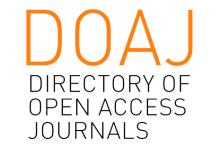Resource information
The paper intends to illustrate an innovative approach to urban planning and shared Administration based on the use of collaborative digital platforms involving the Public Administration /
citizen.
This perspective is expressed in the MiraMap pilot project in Turin, in the District of Mirafiori Sud, which has been drawn up by a research group of the Politecnico di Torino. The project implements and develops a previous experience carried out in 2013 (Crowdmapping Mirafiori Sud), the main purpose of which was to determine whether the use of ICT could generate and support processes of social inclusion.
Through the reading of the MiraMap process, of its objectives, of the methodology adopted, of its phases and lines of action, are highlighted the interdisciplinary and technical reasoning relative to: the structuring of relations with the institutions, in particular with the Public Administration, in the processes of planning and management of public space; the triggering of the processes of inclusion, participation and civic engagement; the identification of contributions that these trials can generate in the construction of a
renewed urban governance. Lastly, this contribution outlines a possible methodology for monitoring and evaluation of ex-post impact, based on Community Impact Assessment/Evaluation (CIA/CIE), that evaluates in a descriptive manner the impacts - monetary and non-monetary - that have derived from the project in
relation to the various actors involved.
The use of ICT can foster the process of transparency and strengthen the accountability of the Public Administration, provided that the technology is an enabling factor and one of exclusion. The detailed analysis of the case provides ideas for reflection on this innovative approach: the citizen/PA relationship
can contribute in the medium-long term to conveying positive socio-economic impacts on the territory, making the citizen more informed and involved and the Administration more responsible, conscious of the needs “from below” and able to facilitate and activate inclusive processes and micro-projects throughout the territory.




